Across the Chinese Mainland, Beijing is known as a city of snacks. Between the 13th and early 20th century the capital was the centre of the last imperial dynasties and home to generations of royal families. During this period, cooks from all over the country were summoned to work in the palace kitchens – bringing with them the flavours, techniques and gastronomic traditions of their home regions. For these culinary masters, the best way to advance their careers was to delight the royal family with unique and mouth-watering dishes – and the competition was fierce.
The result of 700 years of epicurean craft is a varied cuisine that bears all the hallmarks of multicultural Chinese cuisine – from large banquets to bitesize traditional Beijing snacks. Over time, most of these dishes left the Forbidden City and found their way into the city’s maze of hutong alleyways.
Exploring any major city can be a thrilling experience, but most travellers need months to discover all of Beijing’s great street food dishes. To get you started, we’ve selected some of our favourites.

Credit: Larry Zhou/Getty Images

Credit: Larry Zhou/Getty Images
Jianbing
Where to try it: Dahua Jianbing
Originating in northern China, this savoury crepe dates back over 2000 years, and the best place to find it in Beijing is at a small serving window in a quiet hutong south of the Lama Temple. These unique jianbing are made with a mixture of millet flour and mung bean flour, topped with a beaten egg, sesame seeds, chilli oil, pickled vegetables, coriander, spring onions and a wheat-flour crisp – depending on your preference.
25 Beijianzi Xiang
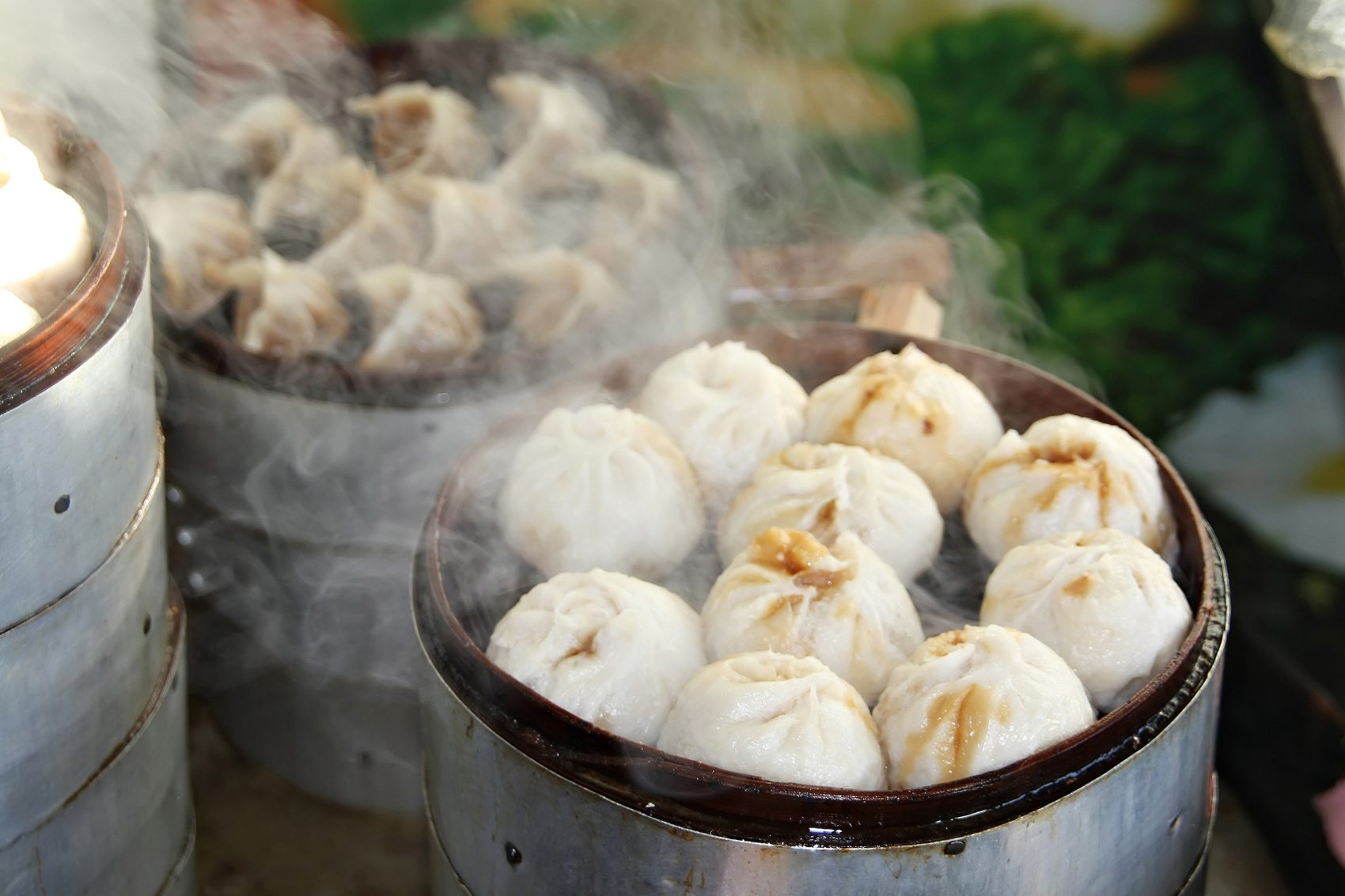
Credit: SiyueSteuber/Getty Images
Baozi
Where to try it: Yaoji Chaogan
What’s not to love about steamed buns filled with meat and vegetables? Baozi can be found all over China, but Beijing’s buns, filled with pork and leek, are truly special. Track down the best of them at Yaoji Chaogan, located near the Drum Tower. Founded in 1989, this bona fide Beijing institution (former US president Joe Biden even made a pit-stop there in 2011) is famous for serving chaogan’r, an ancient breakfast dish of fried liver in starch-thickened gravy. Admittedly, fried liver might not be to everyone's taste, but the baozi served here rank among the city's finest.
311 Gulou Dong Dajie
Beijing ice cream
Where to try it: Wuyutai Tea
On sweltering Beijing afternoons there's no better way to cool down than indulging in everyone's favourite sweet treat. Green tea (matcha) or jasmine tea-flavoured ice cream made by Wuyutai Tea (one of Beijing’s oldest tea brands) can be ordered from windows at the front of tea shops throughout the city. Established in 1887, Wuyutai is also a great place to pick up high-quality tea to take home to friends and family. There are over 100 Wuyutai Tea stores across Beijing, the most convenient of which is located north of Lama Temple's main gate.
43 Yonghegong Dajie
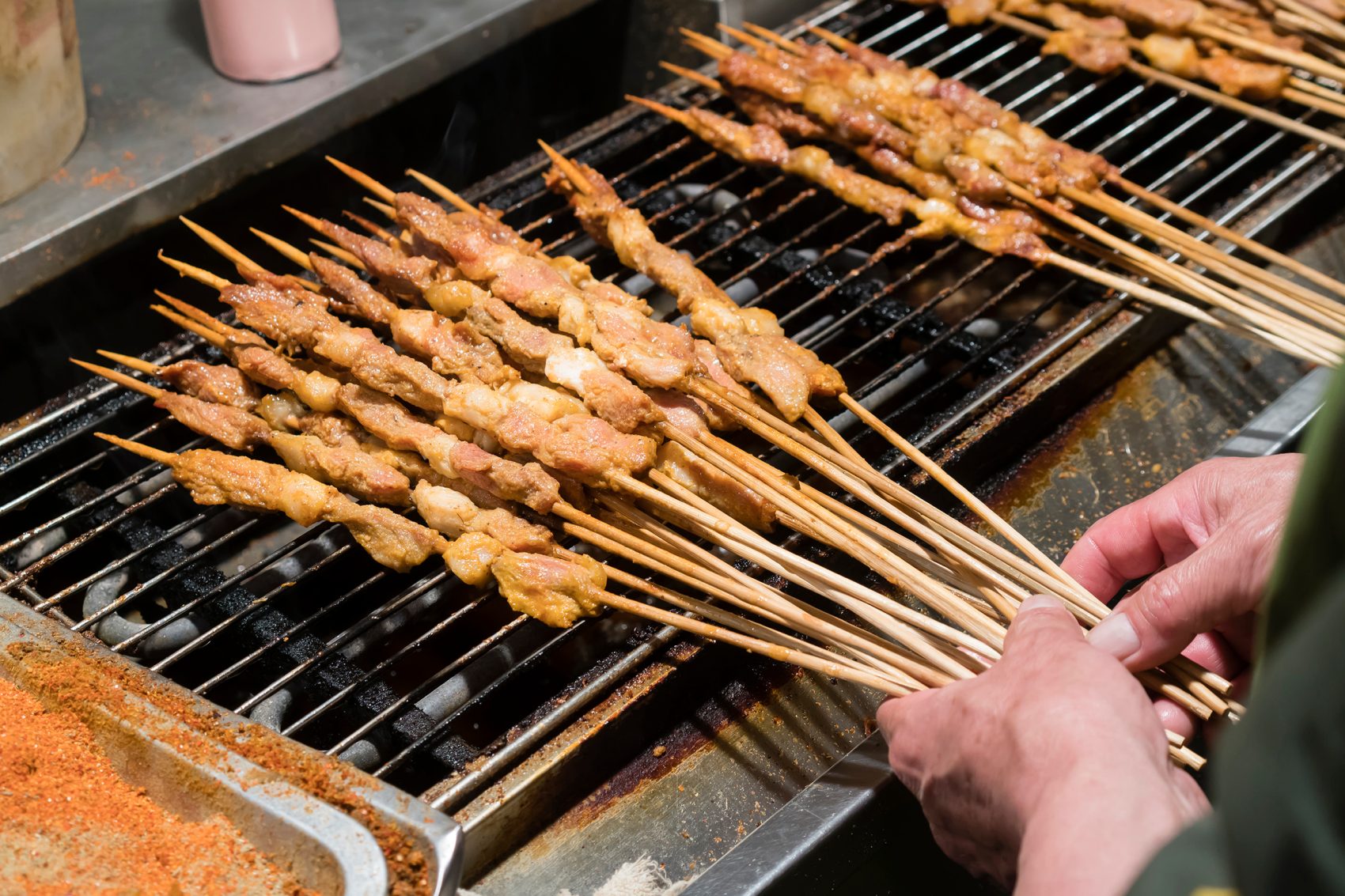
Credit: ymgerman/Getty Images
Chuan’r
Where to try it: Tanhua Shaokao
These shish kebabs (meat skewers, typically made with mutton) are arguably Beijing’s best-loved street food. They can be found on virtually every corner of the city, and in the warmer months you’ll find locals grilling them over hot coals in the hutongs. Keep an eye out for the Chinese character 串 hanging outside kebab restaurants. It means exactly what it looks like: meat on a stick!
141 Jiugulou Dajie
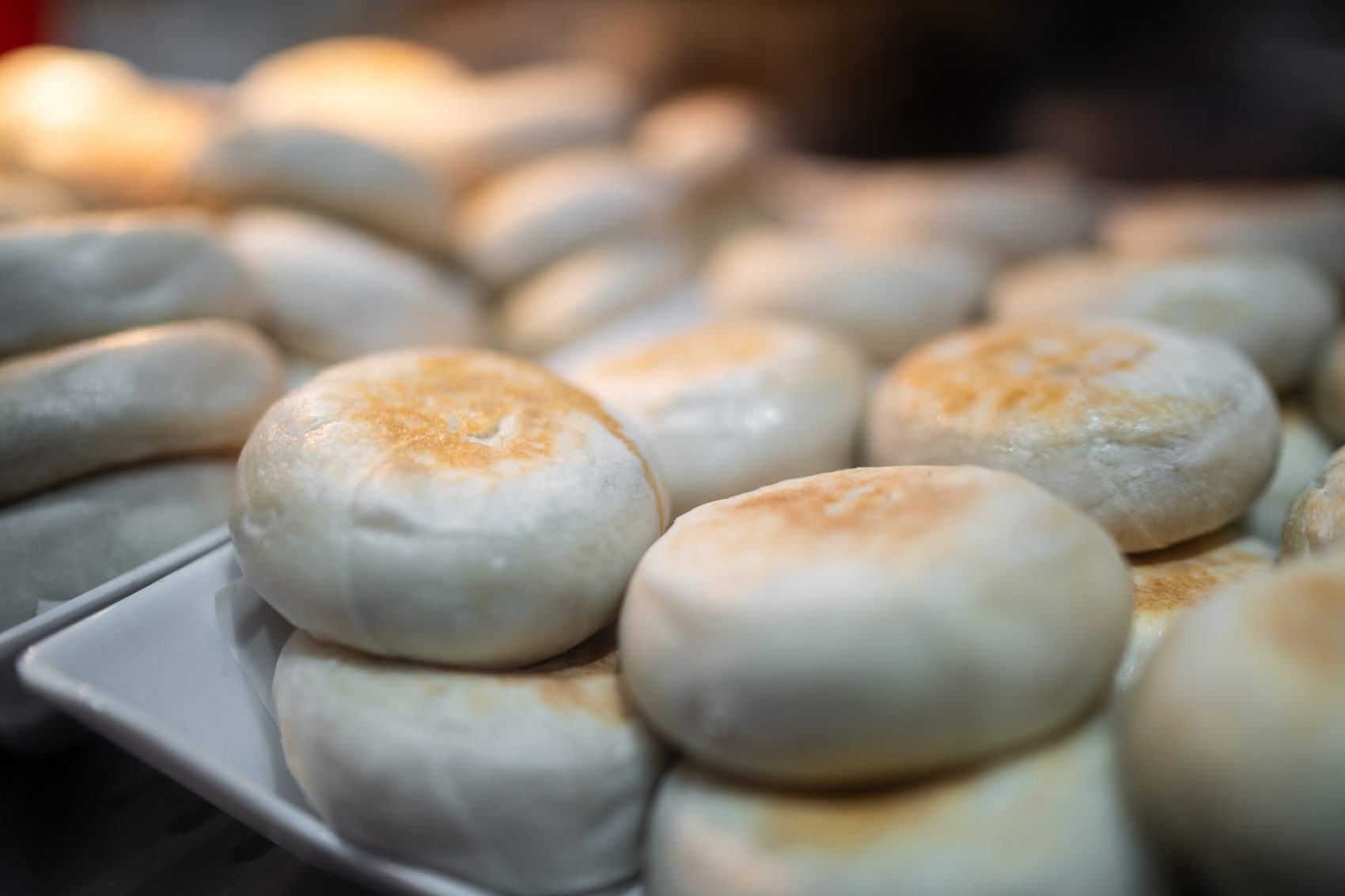
Credit: Helene Decaestecker/Getty Images
Mending roubing
Where to try it: Mashi Mending Roubing
These Beijing-style meat pies were invented during the Qing Dynasty at the request of Empress Dowager Cixi (1835–1908), who was infamous for the high standards she expected from her palace cooks. Legend has it that when she was entering the city one day she told her attendants she wanted to “eat the doornails” that lined the city gates. The result was a beef and leek pie so juicy that diners need to be careful not to shower each other with soup after every bite.
6 Cheniandian Hutong
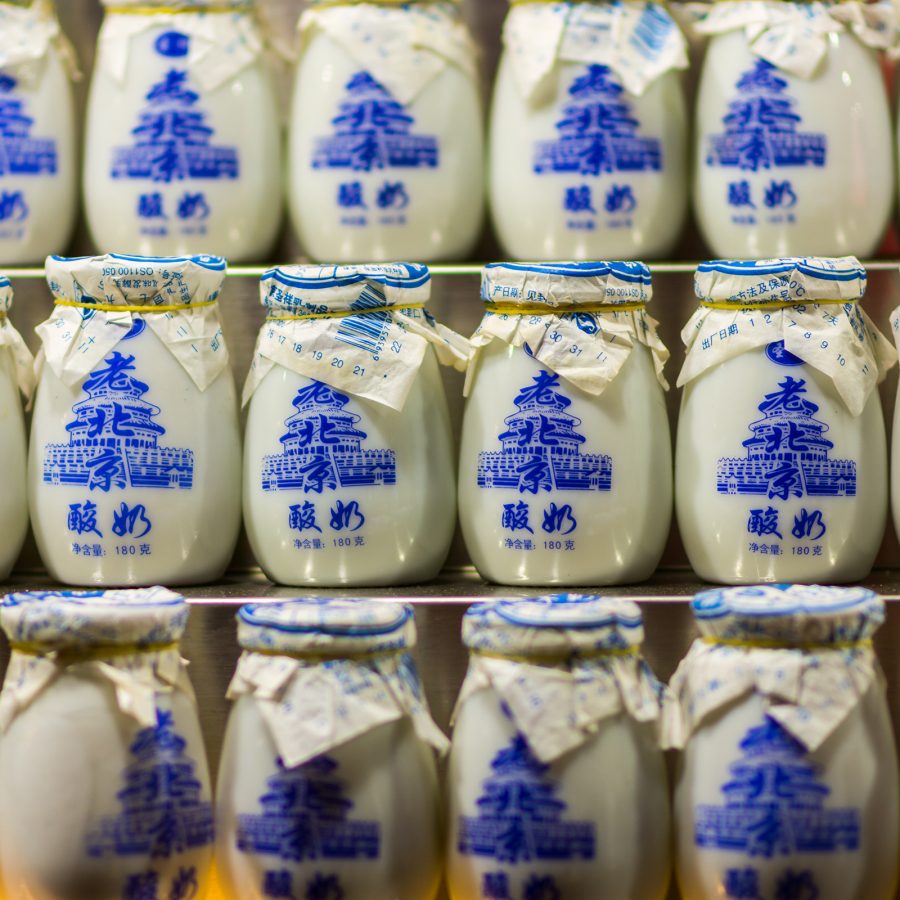
Credit: Mirko Kuzmanovic/Getty Images
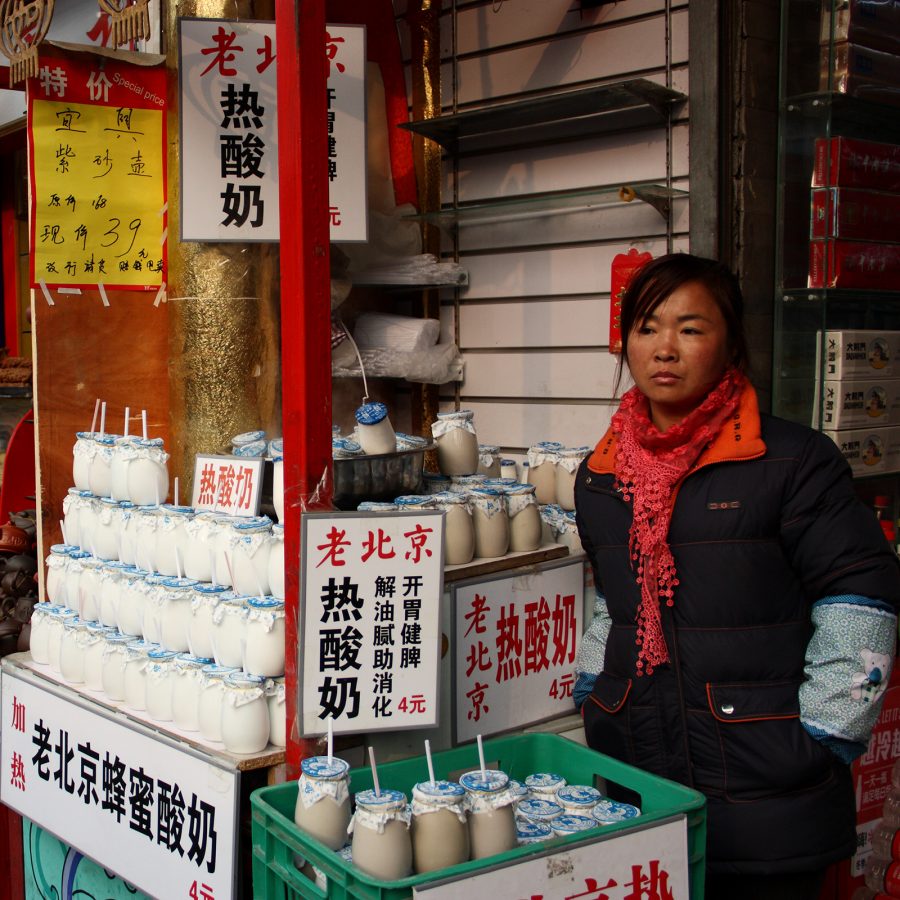
Credit: Zhang Rong/Getty Images
Old Beijing yoghurt
Where to try it: Maxiuhua Food Shop
Brought to Beijing by the Manchus after they invaded the city in 1644, this traditional yoghurt is made by mixing milk and honey and leaving it to ferment overnight. The result is a deliciously creamy yoghurt with a light honey flavour that is typically drunk with a straw.
To find old Beijing yoghurt, keep an eye out for teal-coloured plastic crates outside small corner stores and supermarkets throughout the city, or visit Maxiuhua Food Shop, just west of the Temple of Confucius.
102 Guozijian Street
Garth Wilson runs UnTour Food Tours , China’s oldest and top-rated food tour company, in Beijing.
More inspiration
Beijing travel information
- China – the Chinese Mainland, Hong Kong SAR, Macao SAR and Taiwan Region
- Hong Kong SAR - English
- Chinese Mainland (China) - English
- Taiwan China - English
- 香港特別行政區 - 繁體中文
- 中国內地 - 简体中文
- 中國台灣 - 繁體中文
- Africa
- South Africa - English
- Asia
- Bangladesh - English
- Korea - English
- Singapore - English
- Cambodia - English
- 한국 - 한국어
- Sri Lanka - English
- India - English
- Malaysia - English
- Thailand - English
- Indonesia - English
- Maldives - English
- ประเทศไทย - ภาษาไทย
- Indonesia - Bahasa Indonesia
- Myanmar - English
- Vietnam - English
- Japan - English
- Nepal - English
- Việt Nam - tiếng Việt
- 日本 - 日本語
- Philippines - English
- Australasia
- Australia - English
- New Zealand - English





.renditionimage.450.450.jpg)


